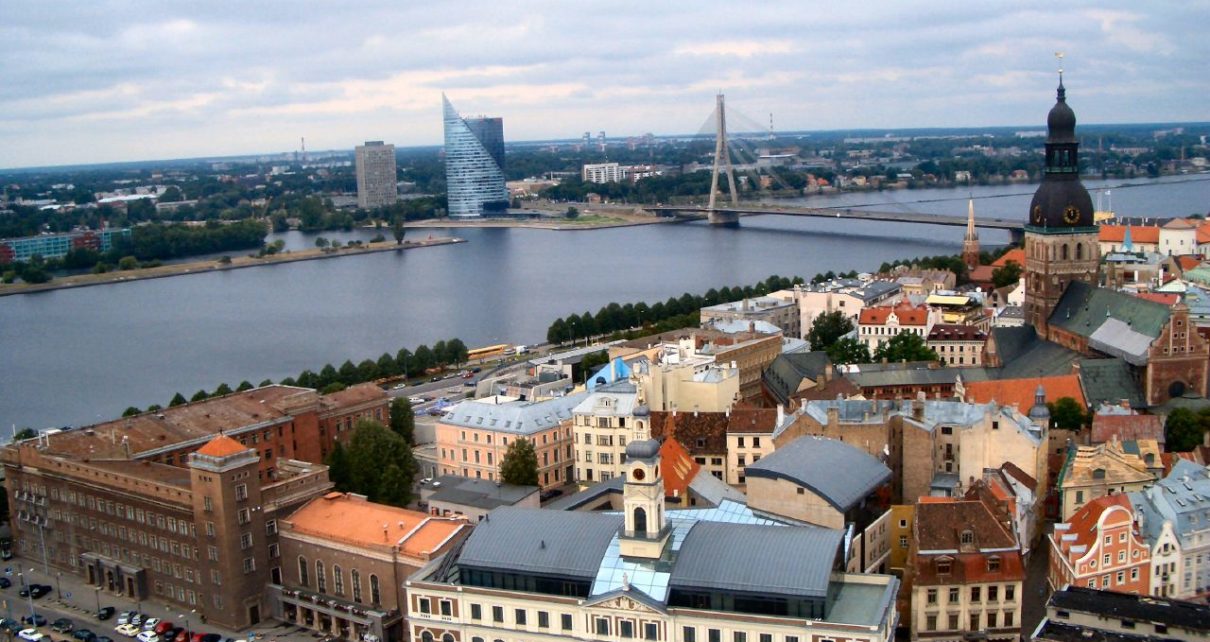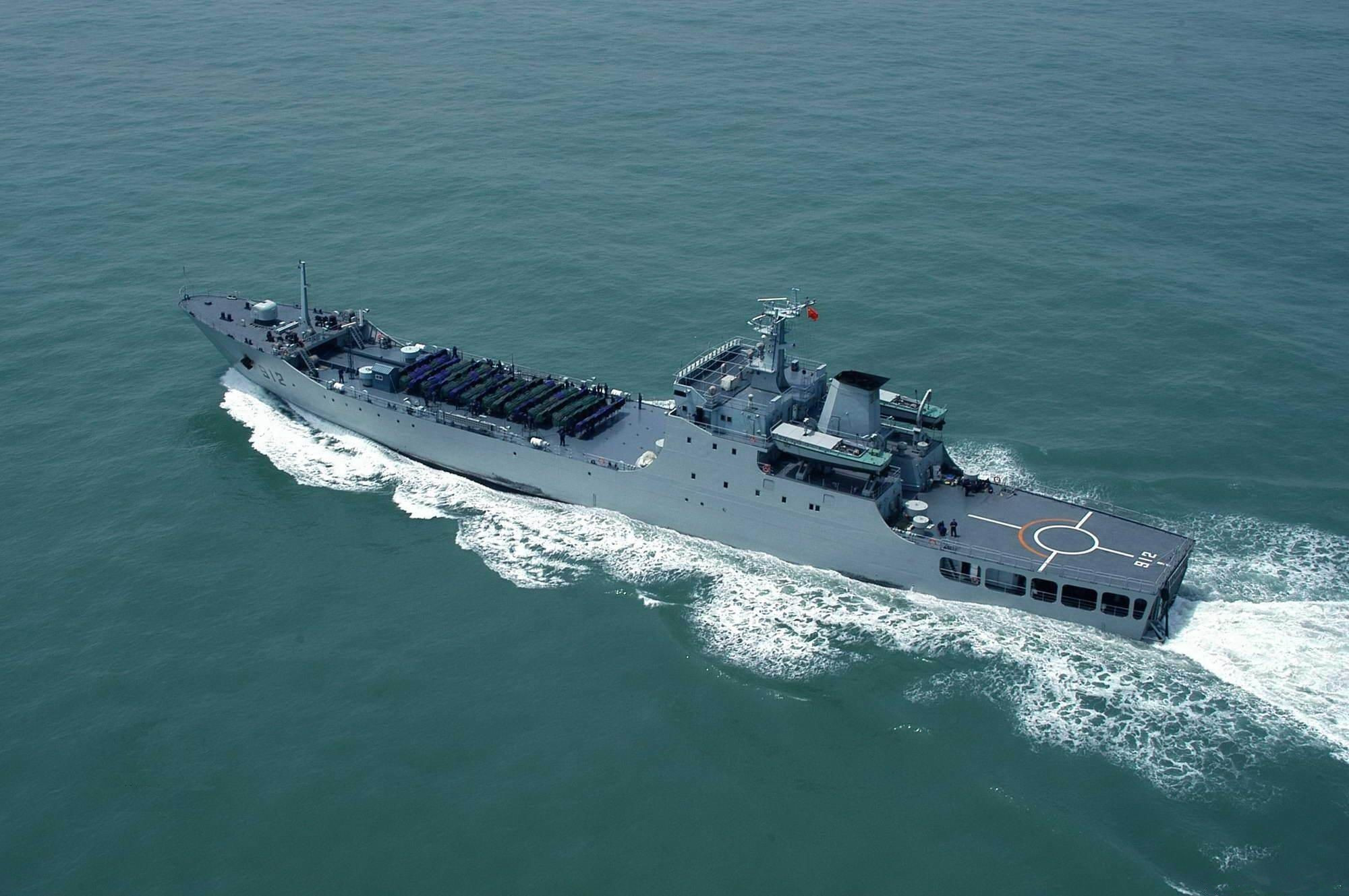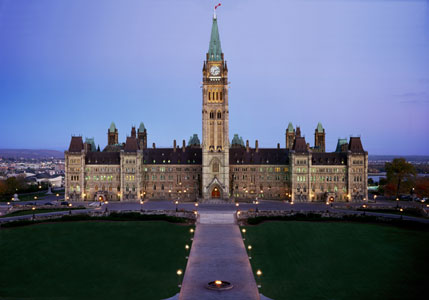“Canada is a big deal here.”
It is a hot Thursday morning in August and Canada’s ambassador to Latvia, Lithuania, and Estonia, Kevin Rex, is discussing his thoughts on the shared values between the Baltic states and Canada.
“Canada has the largest military support presence [in Latvia] of any nation in the world. We’ve had three foreign ministerial meetings in the past fifteen months, most of my European colleagues have not had that.”
Aside from winning the International Ice Hockey Federation World Championships, held in Riga, Latvia, Canada’s role in the Baltics may well be unknown to many Canadians. Separated by an ocean and six time zones between Halifax and Riga, the Baltics are not typically mentioned in any Canadian media, aside from The Sports Network (TSN). However, Canada is indeed a big deal in Latvia. From political and business connections to the Framework Nation for NATO’s enhanced Forward Presence (eFP) deployment in Latvia, Canada has quietly become a leader in the region. It is an astounding story of opportunities, Cold War spy thriller twists and turns, and a genuine connection between allies. Ambassador Rex has been in the middle of it, emerging from the beginning of one conflict into the front lines of another.
Making of a Front Line
The end of the Cold War was heralded in the West as the “end of history,” a moment of triumph in a war that featured the looming threat of nuclear annihilation. Nowhere more did the end of the Cold War affect the social, political, and economic landscape than the Baltic states. Seized by the Soviet Union during the end stages of the Second World War, both Roosevelt and Churchill recognized the occupation during the Yalta Conference, understanding that the superior forces of the USSR in the east theatre prevented Stalin from being dislodged. Providing a geographic barrier from Western Europe, the Soviet Union sought to assimilate Latvia, Lithuania, and Estonia under the process of “Sovietization,” which included economic reorganization, the mass deportation of political opponents, and education through political indoctrination. After the dissolution of the USSR, the Baltic states entered NATO and the European Union in 2004.
Gaining membership, however, did not cause the threat of Russian interference to dissipate. Rather, Russia continued to exert its military influence on its bordering territories, and in 2007, launched an immobilizing cyberattack against Estonia, by then a NATO member state. The next year, Russia invaded Georgia, raising fears within the Baltic region about a possible annexation. In short, the Baltics present a history of being on the front lines over the past seventy-five years and will continue to be so long as the East and West remain at odds.
It is also on the front lines that Ambassador Rex began his career, graduating from Queen’s University in 1995 and from New York University in 1999. Though not present in the city during the events of September 11, 2001, the attacks would play a pivotal role in his career. Calling himself an “honorary New Yorker,” it was a connection that would be essential to his time working for the city of New York and at Turtle Bay. “My very first posting ever, I was a junior advisor, which is about as baby as you can get in the foreign ministry,” the Ambassador recalled his time at the United Nations. Ambassador Rex credits his counselor at the United Nations for allowing him to expand his portfolio and negotiate his own resolutions on the second committee on development files. The attacks on the Twin Towers had a significant effect on Ambassador Rex, whose office while working for the city had been across from Ground Zero. “It was very personal to me,” said Ambassador Rex, reflecting on a day that, even after twenty years, still resonates heavily amidst the chaos of the war in Afghanistan. “I wrote an article about it at the time…my friends and coworkers were very much the ones on the ground dealing with this situation,” the Ambassador noted. “It was a lot of the stuff I’d end up doing…Afghanistan was one of those.”
Kabul had fallen four days prior to our conversation and the images of panicking Afghans crowding into C-17s had flooded media across the world. A sense of desperation, not only among those looking to escape but also amongst those that had served in the two-decade conflict, permeated capitals across the West. “My time [in Afghanistan] was long enough ago that I remember the hardships, but I also have a very positive general vibe about what we did,” Ambassador Rex remarked when asked about his experiences in Afghanistan, where he served as one of the first Canadian diplomats operating in an active conflict zone since the end of the Korean War. “The images are horrific and tragic…you want to save everyone,” he said, touching on the scenes emerging from Hamid Karzai International Airport, but also stated that “I one hundred percent believed in what we did at the time…the metrics in the early stages in the mission were so positive…these weren’t changes of one or two percentage points, these were huge…you can definitely say you had a difference.” In particular, Ambassador Rex was adamant that the chaos in Afghanistan should not deter future interventions by the West. “That’s one of my fears is that everyone will say that let’s not go and do anything anymore,” he commented. “I have no regrets at all about having been there and having participated.”
Ambassador Rex’s career would continue throughout the front lines of crisis response, including in Haiti and Nepal after respective earthquakes in 2010 and 2015. It was Haiti that deeply affected him as he spoke about his role as a civilian partner on the disaster assistance response team run by the Department of National Defence. “Haiti was intense…we were on the ground very shortly after the earthquake,” he said, recalling his first impression of the aftermath. “It was horrific…there were corpses on the ground, some covered in bedsheets, some not.” Sleeping on the side of the airport tarmac, the Ambassador identified the consular staff as enduring the more difficult challenge, being forced to turn away people at the embassy. After Haiti, Ambassador Rex served in Nepal in the same position, though he says that the response was more modest, given the well-organized Nepalese government and the lack of a Canadian presence in the country. It was these experiences that he also credits with getting him comfortable working alongside the Canadian Armed Forces (CAF). “You learn to work with them, you learn to speak the language… we have a big military, but it’s a small family.” Serving in Latvia, it was a talent that would soon become useful as the eFP concept came to fruition after another front line erupted into conflict, this time on the edges of continental Europe.
Right of the Bang
The annexation of Crimea by Russia in 2014 thrust Eastern Europe once more into the spotlight in a way not seen since images of SS-20s were paraded on the front pages of newspapers across NATO member states. The annexation occurred as the United States was pivoting towards Asia and withdrawing from foreign interventions. However, the old demon of a war on the European continent awoke from its EU-induced slumber. The events in Crimea highlighted not only the emergence of a new age of “great power competition” that had never truly disappeared, but also a need for a forward-looking model of NATO deployment. The eFP combined a rapid-reaction force and a model of interoperability that extended beyond the kinetic and into a society-wide approach to security and defence.
Pushing into the Black Sea, the Crimean Peninsula has historically been a point of conflict between Russia and Western Europe since the nineteenth century. The fierce fighting of the Crimean War, beginning in 1854, changed the balance of power in Europe and foreshadowed the larger devastation of the First World War as crises in the East spiralled into wide-scale trench warfare. However, rather than suffer heavy losses and a humiliating defeat as occurred nearly 180 years ago, Russia embraced a new style of warfare marked by its reliance on deception. Irregular forces replaced traditional uniforms and the integration of information warfare and appeals to hyper-nationalism emerged as Russia’s new strategic framework on the eastern flank. As protests grew over the issue of Ukraine drawing closer to the EU, “little green men” began to appear in Crimea, presenting themselves as demonstrators despite being equipped with armaments commonly associated with the Russian military. Following a vote on an unconstitutional referendum held under duress, Crimea voted to join Russia, landing a blow to the edge of NATO’s eastern flank and representing a warning shot to the credibility of the rules-based international order.
The enhanced Forward Presence was NATO ‘returning fire,’ integrating multinational battle groups led by Canada, Germany, the United States, and the UK into the force structures of the Baltics and Poland. The first significant alteration of NATO’s deterrence architecture in a generation, the eFP was designed to bolster the solidarity of the allies while heightening the interoperability of member states’ personnel. Rather than the Very High Readiness Joint Task Force, a multinational force designed to intercept potential conflicts before reinforcements could arrive, the eFP deployments were designed to remain in theatre, pre-positioned in case of an incident. Along with a broader pattern of actions taken by the West, including sanctions against Russia and the transfer of non-lethal military aid to Ukraine, the eFP can be seen as a turning point in the relationship between the West— including the United States— and Russia. In the drift from the friendship between Yeltsin and Clinton followed by the growing uneasiness between Bush and Putin to the open hostility between Putin and Obama, the dream of a post-war period of harmony evaporated. It was that drift that ultimately allowed Ambassador Rex to enter his latest posting, following the deployment of CAF members to Latvia after Canada agreed to become a Framework Nation in 2016.
Meeting the Moment
Since the first tenure of Justin Trudeau in 2015, Canada has declared its interest in developing a stronger role in international institutions, particularly NATO. While this has resulted in some missteps, including failing to secure a seat on the United Nations Security Council, Canada’s role as a Framework Nation in Latvia as a part of the eFP model has largely been a success. Measured by the strength of the battle group and its growing commitment to the Baltic states, Canada has shown its ability to be a leader on a critical security issue and demonstrated its role as an essential part of NATO’s future. For Ambassador Rex, however, it had largely modest beginnings, as he described the Canadian mission to Latvia before the launch of the eFP.
“Riga, the embassy here, would have been prior to the start of this mission, essentially Canada’s smallest footprint in Europe with the possible exception of Reykjavík in Iceland,” Ambassador Rex shared, recalling his initial thoughts about the posting. “The three Baltic states have a modest population, a modest GDP, so you didn’t need a mission here like you have in London or Paris or Brussels.” However, that changed dramatically with the CAF deployment in service of the eFP. “All of the additional resources that we enjoy are there to support this now very large Canadian military presence,” the Ambassador continued, and “that was the message I relayed to the first task force commander.” The work of the embassy extends far beyond offering consular services to Canadian service members, however, as Ambassador Rex detailed during our discussion of his day-to-day interactions with the personnel stationed at Camp Adazi.
“Everything we do, we do with the view of how it will support the Task Force, how they can support us, how we can present this holistic Team Canada image, and I think we’ve been very successful with it,” Ambassador Rex remarked. “NATO did an academic study of the four battle groups and referenced the Canada model of syncing up the messaging between the embassy and the task force and going out and doing outreach together.” Although unmentioned, the Team Canada theme was not understated in the décor of the conference room with a framed Team Canada hockey sweater hanging on the wall. “My standing instructions to the team is that any invitation from eFP troops…we say yes to, so whenever we can support and help,” the Ambassador continued. “Riga is a small town so we run into these guys all the time.”
However, the outreach work conducted by Ambassador Rex and the eFP served a deeper purpose than extending a neighbourly welcome to a transatlantic ally. Disinformation campaigns launched from across the border had targeted the eFP continually since their arrival in the country, particularly at the height of the coronavirus pandemic. “In terms of the battle group, this is well published, early days, so when Canada first rolled in, definitely was targeted with some disinformation,” the Ambassador recalled about a story that eFP members were using up all the available housing. “There were stories about COVID running wild through the battle group,” he continued, even though “ironically, there was a COVID outbreak at the battle group, and there was no media coverage.” Ambassador Rex credits both Canada’s strong image and the work of the Latvian government in preventing the proliferation of misinformation. “When I arrived, we launched this campaign called Twelve in Twelve, twelve cities in twelve months, and it’s for fun and for information…we’d do serious business with the mayor, but then also do films and do vehicle displays and weapons displays,” the ambassador said in describing the outreach effort.
Hearts and Minds
With our conversation drawing short, the topic turned more inwards, towards the bilateral connections between the Baltic states and Canada, and inadvertently, Canada’s role in global affairs. When asked about his view on the relationship and the role of diaspora communities, Ambassador Rex spoke in personal terms about his position representing Canada in the region. “The first thing I did on my first visit home to Canada is ask for the leadership [of the diaspora communities] to organize a community town-hall and…the reactions were a goose-bump inducing moment, they were so positive,” he said, reflecting on his experience. “It’s a very emotional reaction…we benefit a lot from it too, when you’re doing cultural exchange work.” Ambassador Rex also pivoted to speaking about Canada’s effect on the region, and beyond. “The first female president of Latvia was a Canadian citizen…the changes that she was able to effect are entirely influenced by her life experience and education in Canada…and of course this happens all over the world, that’s the beautiful thing about Canada.” He continued, “we are accepting of people from all over the world, and if not them, sometimes their children or grandchildren return back home and have a very positive impact.”
Winning “hearts and minds” is a phrase that most often invites reflection on the failures of the West, primarily the United States, to achieve its desired political and military outcomes during foreign interventions. First associated with the Vietnam War and Lyndon Baines Johnson, the phrase has followed Western intervention, notably to Iraq and its American “liberators.” However, in describing the eFP, “hearts and minds” seems appropriate. Beyond protecting the governments based in Vilnius, Tallinn, Warsaw, and Riga, the eFP builds upon a promise, one that Canada has shown itself willing to sacrifice to uphold. It is a promise that the Baltics will no longer be pawns in a geopolitical chess match. It is a promise that Ambassador Rex recognizes as well. When asked about a favourite site in each capital, he is quick with an answer. “Go to the museums of occupation…it’s hard for us in our comfortable seats to even imagine what that must have been like.”
Photo: Utsikt från S:t Peterskyrkan, Riga, Latvia (August 4, 2006), by Ulrika via Flickr. Licensed under CC BY-ND 2.0.
Disclaimer: Any views or opinions expressed in articles are solely those of the authors and do not necessarily represent the views of the NATO Association of Canada.




